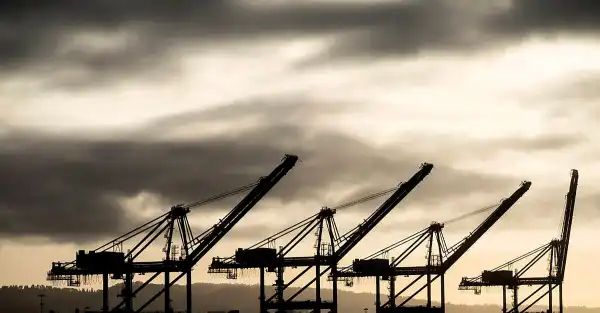
Spanish new Sumar party has opened the door for all left-wing forces to work together ahead of Spanish and EU elections, paving the way for the European Greens to boost their political weight.
Sumar is a new party running in the Spanish elections on 23 July in coalition with all forces at the left of the socialist party (PSOE/S&D) – mostly minor parties – under the leadership of current Minister of Labour Yolanda Díaz, with chances of entering government.
Perceived in Spain as a leftist force with two of its main composing parties affiliated with The Left group in the European Parliament – Podemos and Izquierda Unida -, Sumar also represents a new opportunity for the European Greens to occupy a space in Spain’s political landscape, so far very limited.
“We want to collaborate with both families [Greens and Left], and we are looking to form a historic progressive bloc that is capable of uniting the Green and Left with European trade unionism and social movements, precisely to be able to confront the problems whose magnitude and scale require broad, broad consensus”, Sumar’s co-spokesperson Carlos Corrochano told EURACTIV.
In June, Yolanda Díaz stressed that she seeks to become “the first Green president”.
The battle against climate change for social justice, civil rights, women’s rights and LGBTI rights are all part central axes of Sumar’s agenda, which, according to European Green Part co-chair Mélanie Vogel, also represents the Greens agenda.
“What they stand for and what they want to do, it’s the Greens project”, she told EURACTIV.
Currently, only one of the three Green parties in Sumar has a modest representation in the Spanish parliament with seven seats and in the European Parliament with one, but the European Greens are doubling-down efforts to increase their presence and relevance.
European Green Party co-chair Mélanie Vogel travelled to Spain during the last days of the electoral campaign to support Sumar, while she also attended Yolanda Díaz’s candidacy launch event of Sumar on 2 April.
‘For the EGP [European Green Party], this is one of the most important national elections that we have because, of course, this is going to design the future of Spain, but also the future of Europe as, if we don’t keep a progressive government in Spain, we will have great difficulties in the in the Council’, Vogel told EURACTIV.
Apart from campaigning, Vogel argued the Greens’ role is to bring best green practices to Spain from successful parties across Europe, like the German and Austrian Greens, by connecting people and ‘ministers’.
‘We want to invest in it also, like in the long run, not only for these elections but on building something that can really work and deliver the policies that we stand for’, she added.
The Greens/EFA group in the European Parliament, affiliated with the European Green Party, is also planning a summit in Madrid with Sumar in September to discuss policy priorities and set the tone for the EU elections.
Sumar in the European Parliament?
SUMAR also intends to run for the EU elections, even though the party is currently focused on the Spanish general elections on 23 July.
Asked by EURACTIV about whether Sumar would run for the EU elections, the party’s co-spokesperson Carlos Corrochano said that ‘what we know very clearly and what we have said on many occasions is that Sumar is a long-term project that goes far beyond July 23rd’.
‘Once we overcome these elections, and hopefully with a positive result, we will put all the machinery in motion to present the best possible project in June next year [EU elections take place on 6-9 June 2024]’, Corrochano added.
Currently, Sumar holds five seats in the European Parliament, 4 in The Left group and 1 in the Greens/EFA, but it is still unclear whether the collaboration with both groups would follow or whether Sumar would affiliate with just one EU political ‘family’.
‘Sumar will probably have a presence in both families, the party affiliation is a decision that has not been taken, but that does not worry us because we believe that there are a lot of formulas that allow us to collaborate and unite both families with efficiency and ease’, Corrochano said.
(Max Griera | EURACTIV.com)
Read more with EURACTIV

UK objects after EU refers to Falklands by Argentine nameBritain’s government reacted angrily Thursday (20 July) after the European Union used the Argentine term for the Falkland Islands, the territory over which the two countries fought a war in 1982.
Source: euractiv.com



